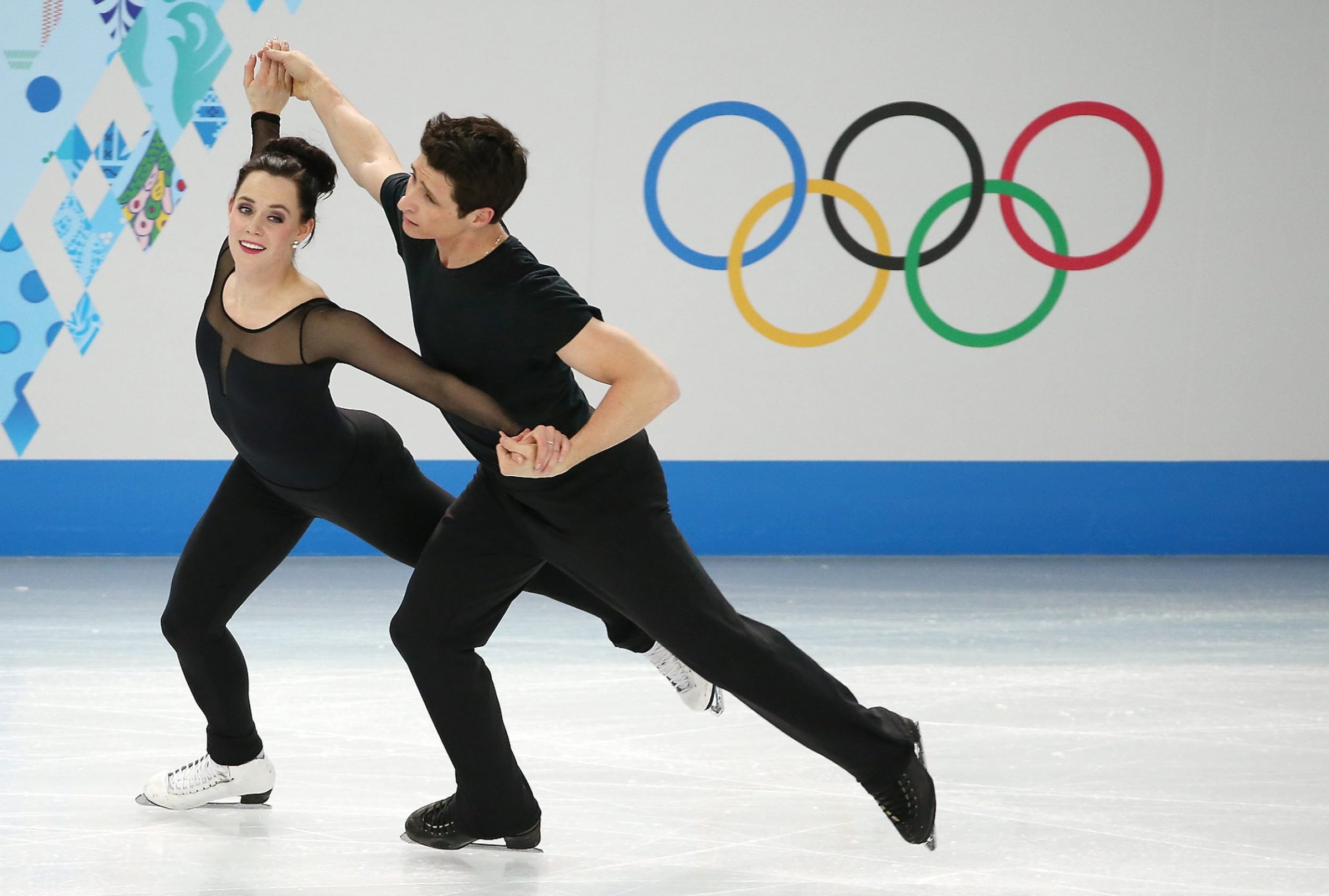
Bet you didn’t know that figure skating could be a team sport, did you?
Figure skating is already one of the marquee events of the Winter Games, and since four different disciplines of the sport apparently weren’t enough, the International Olympic Committee decided to add another—a team event. So for the first time ever, figure skaters this year in Sochi can earn more than one medal at the Games, a possibility not lost on those hungry for hardware.
The competition begins on Thursday, as the men and pairs do their best to add to their country’s totals. Here’s what you need to know, and what to watch for.
Which countries are competing?
Only 10 countries earned the right to compete at the event, based on how their skaters finished at the 2013 World Figure Skating Championships, the International Skating Union’s Grand Prix series this season, and other events. In order of rank, those countries are:
How is the event scored?
Just like in the other skating events, each skater performs two routines—a short and a free program, for a total of eight scores per country. First place receives 10 points, second place nine points, and so on down the line.
Only the top five scoring teams will continue on to compete in the free skate.
Which skaters are competing?
Each country’s skating federation will determine which athletes will skate which events. Each team is allowed two substitutions across all four disciplines; one ladies’ skater may perform the short program, for example, while another performs the free, and one pairs team may compete in the short and another compete in the free, and that would exhaust that country’s substitutions.
Entries for each category (ladies, men, pairs and dance) must be submitted 24 hours before the scheduled event.
Which US skaters will be chosen to compete?
The U.S. skaters have kept their strategy under wraps. As the 2013 world team trophy champs, the Americans have a good chance of grabbing gold; seven of the eight members of that championship team are competing in Sochi.
What strategy is involved?
The event stretches over three days of competition, beginning Thursday (the day before Opening Ceremonies) with the men’s and pairs short programs. Russia, which only qualified one male skater in the men’s event, 2006 Olympic gold medalist Evgeny Plushenko, will have to use him in both the short and free programs of the team competition, but has more play in the pairs and dance events, in which they have three teams each.
Coaches and skaters will have to balance the demands of competing in potentially four programs in the space of a week, and the U.S. athletes have hinted that they would be eager to spread the wealth at the team event to maximize the number of athletes able to participate.
Canada is also strong in pairs and dance, with three teams each, while the U.S. qualified three teams in ice dance, including reigning world champions and Olympic silver medalists Meryl Davis and Charlie White, but only two in pairs.
The ladies’ events, on Feb. 8 and Feb. 9, will be a good opportunity for Russia, Japan and the U.S. to tally up points; the U.S. team includes new national champion Gracie Gold, and Ashley Wagner, who came in third in this season’s Grand Prix Final, and newcomer Polina Edmunds. Japan has Mao Asada, the reigning Olympic silver medalist, new national champion Kanako Murakami and Akiko Suzuki. Russia produced some surprisingly talented teens this season, after some mediocre rankings in recent years; look for Yulia Lipnitskaya and Adelina Sotnikova to stun the judges with their jumps.
And finally, training-mates-from-different-countries Davis and White (U.S.) and Tessa Virtue and Scott Moir (Canada), who work with coach Marina Zoueva in Canton, Mich., may face off in the short and free programs in ice dance; they are the reigning silver and gold medalists, respectively, from Vancouver.
More Must-Reads from TIME
- Cybersecurity Experts Are Sounding the Alarm on DOGE
- Meet the 2025 Women of the Year
- The Harsh Truth About Disability Inclusion
- Why Do More Young Adults Have Cancer?
- Colman Domingo Leads With Radical Love
- How to Get Better at Doing Things Alone
- Michelle Zauner Stares Down the Darkness
Contact us at letters@time.com